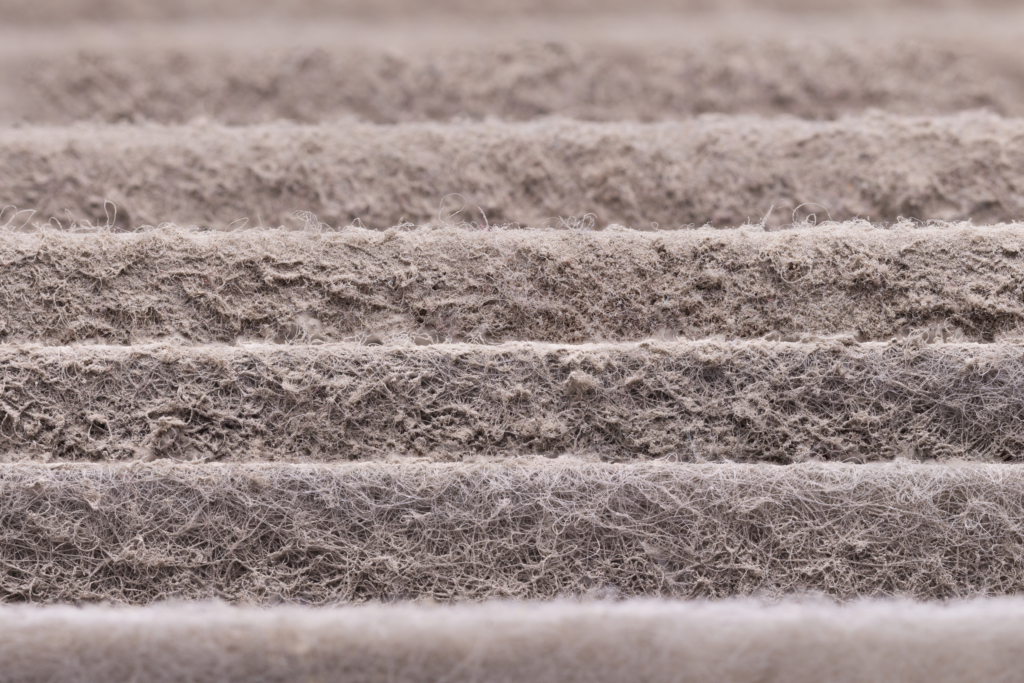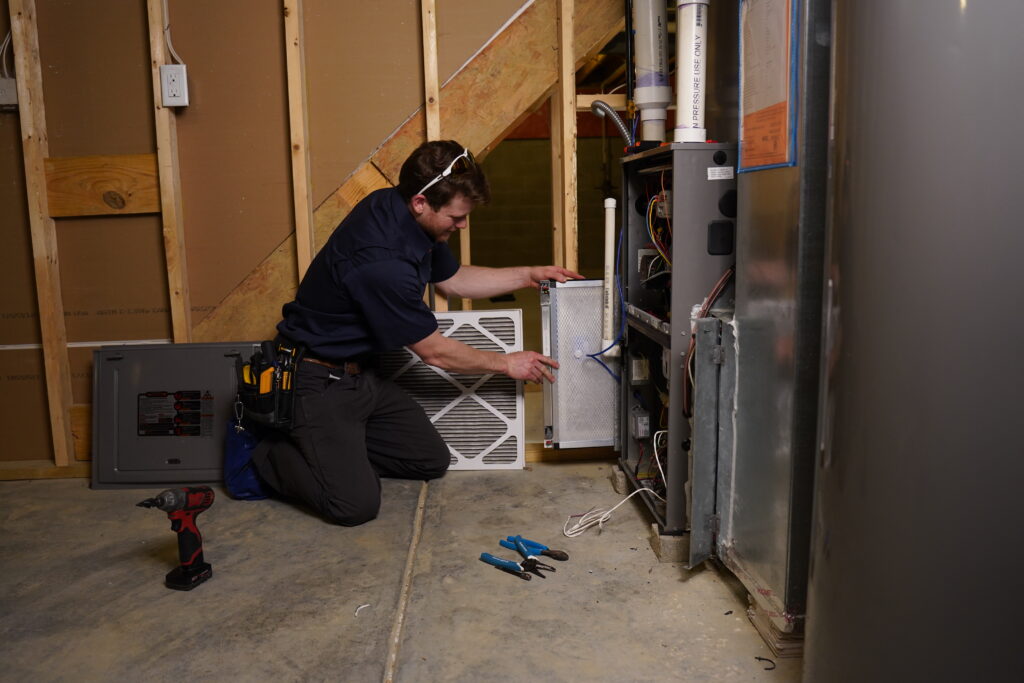Though it may appear minor, a clogged air filter can significantly affect your home’s indoor air quality (IAQ) and overall health. At Circleville Heating & Cooling, we aim to highlight the potential consequences of neglecting your air filters. Every Ohio homeowner should recognize the importance of regular maintenance to avoid serious HVAC-related issues.

Why Is It Horrifying?
- Reduced Air Quality: A clogged air filter prevents your HVAC system from effectively filtering airborne contaminants like dust, pollen, and germs. This results in poor indoor air quality, which can worsen respiratory conditions such as asthma and allergies. For Ohio homeowners, where seasonal changes can introduce various allergens, maintaining high indoor air quality (IAQ) is essential.
- Increased Energy Bills: When your HVAC system has to work harder to push air through a clogged filter, it consumes more energy. According to a study by the Department of Energy, replacing a dirty, clogged filter with a clean one can reduce your air conditioner’s energy consumption by 5% to 15%. Given Ohio’s fluctuating weather, your HVAC system is already under strain; don’t make it work even harder.
- System Breakdown: Ignoring your air filter can lead to more than just poor air quality and increased energy bills. Over time, the added strain on your HVAC system can cause significant breakdowns, resulting in costly repairs or even a complete system replacement. For Ohio homeowners, where HVAC systems represent a major investment, regular maintenance is key to saving money in the long run.
- Pollutants and Contaminants – A clogged air filter can lead to the unrestricted circulation of harmful pollutants and contaminants throughout your home. This includes mold spores, pet dander, and tobacco smoke particles. Such contaminants can trigger a range of health issues, from minor irritations like sore throats to serious conditions such as respiratory infections. It’s crucial to address this to ensure a healthier living environment.
- Dust and Debris Build-up – One of the most immediate effects of a clogged air filter is the increased accumulation of dust and debris within your home. You may notice that your furniture collects dust more quickly, and your HVAC vents might even accumulate a noticeable layer of dust. This not only detracts from your home’s cleanliness but means you’re continuously breathing in these particles, which can impact your overall well-being.
- Germs and Bacteria – A less obvious yet equally concerning consequence of a clogged air filter is the proliferation of germs and bacteria. A dirty filter can become a breeding ground for harmful microorganisms circulating throughout your home. This is particularly troubling for individuals with preexisting asthmatic or respiratory conditions.
What Are the Tell-tale Signs You Need to Change Your Air Filters?
- Increased Allergy Symptoms: If you or your family members are facing heightened allergy symptoms despite medication, it’s crucial to check your air filter. Symptoms such as sneezing, coughing, and itchy eyes can all worsen due to poor indoor air quality, highlighting the importance of maintaining clean air systems.
- Unusual Odors: A clogged air filter may lead to unpleasant odors circulating in your home. These can range from musty smells to more intense odors, depending on the contaminants trapped in the filter, underscoring the need for regular maintenance.
- Higher Utility Bills: A sudden increase in your utility bills, without a change in your HVAC usage, may indicate a clogged air filter as the cause. When the system has to work harder, it consumes more energy, leading to higher costs.
For the best results in maintaining a healthy and efficient home environment, it’s essential to address these issues promptly. If you notice any of these signs, consider reaching out to a professional for assistance in ensuring your air quality and HVAC systems are performing optimally.
How Often Should You Replace Your Air Filters?
- Seasonal Changes – In Ohio, where seasonal extremes are common, it is crucial to check your air filter at the beginning of each season. This proactive step ensures that your HVAC system is equipped to handle the varying demands throughout the year. For homeowners who prefer a more flexible approach, we recommend changing your air filters every 30-90 days, depending on usage and lifestyle requirements.
- Post-Renovation – Additionally, if you have recently completed any home renovations, replacing your air filter is advisable. This is because any type of home project or construction project can introduce significant dust and debris into the air, which can quickly clog your filter and hinder system performance.
- For Pet Owners – If you have multiple pets, it is essential to change your air filter more frequently. Pet dander and fur can accumulate rapidly, impacting your home’s indoor air quality (IAQ).
By adhering to these guidelines, you ensure optimal performance of your HVAC system and maintain a healthy living environment. For any further assistance or professional HVAC services, do not hesitate to reach out to us.

The significance of maintaining a clean air filter for your HVAC system and ensuring high indoor air quality are paramount. Don’t delay until air filter maintenance becomes urgent! Incorporating regular air filter care into your home maintenance routine is essential. There are no hidden tricks; with these straightforward tips, you’ll be well-prepared to tackle any air filter issues that arise. Trust in our expertise to provide a comprehensive approach to maintaining your home’s air quality. Contact us today for all your HVAC needs!
Circleville Heating & Cooling can help you tackle any HVAC scares that may dare come your way! Call today at (740) 218-5323, or schedule an appointment online now by clicking here!





